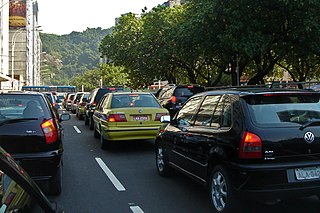Offense or offence may refer to:
Offense or offence may refer to:

An assault is the act of inflicting physical harm or unwanted physical contact upon a person or, in some specific legal definitions, a threat or attempt to commit such an action. It is both a crime and a tort and, therefore, may result in criminal prosecution, civil liability, or both. Generally, the common law definition is the same in criminal and tort law.

A summary offence or petty offence is a violation in some common law jurisdictions that can be proceeded against summarily, without the right to a jury trial and/or indictment.
In criminal law, mens rea is the mental element of a person's intention to commit a crime; or knowledge that one's action would cause a crime to be committed. It is considered a necessary element of many crimes.
Fighting words are written or spoken words intended to incite hatred or violence from their target. Specific definitions, freedoms, and limitations of fighting words vary by jurisdiction. The term fighting words is also used in a general sense of words that when uttered tend to create a verbal or physical confrontation by their mere usage.
Burglary, also called breaking and entering and sometimes housebreaking, is the act of entering a building or other areas without permission, with the intention of committing a criminal offence. Usually that offence is theft, robbery or murder, but most jurisdictions include others within the ambit of burglary. To commit burglary is to burgle, a term back-formed from the word burglar, or to burglarize.
Battery is a criminal offense involving unlawful physical contact, distinct from assault which is the act of creating apprehension of such contact.
Principal may refer to:
Daw or DAW may refer to:
Intimidation is intentional behavior that would cause a person of reasonable apprehension to fear injury or harm. It is not necessary to prove that the behavior caused the victim to experience terror or panic.
Depth(s) may refer to:
Offensive may refer to:

Road rage is aggressive or angry behavior exhibited by motorists. These behaviors include rude and verbal insults, yelling, physical threats or dangerous driving methods targeted at other drivers, pedestrians or cyclists in an effort to intimidate or release frustration. Road rage can lead to altercations, damage to property, assaults, and collisions that result in serious physical injuries or even death. Strategies include long horn honks, swerving, tailgating, brake checking and attempting to fight.

Lèse-majesté or lese-majesty, a French term meaning "to do wrong to majesty", is an offence against the dignity of a reigning head of state or against a state.
Jones may refer to:
Stray or The Stray may refer to:
Unlawful assembly is a legal term to describe a group of people with the mutual intent of deliberate disturbance of the peace. If the group is about to start an act of disturbance, it is termed a rout; if the disturbance is commenced, it is then termed a riot. In England, the offence was abolished in 1986, but it exists in other countries.
Dead refers to that which has experienced death.
Offender(s) or The Offender(s) may refer to:
Hate speech laws in England and Wales are found in several statutes. Expressions of hatred toward someone on account of that person's colour, race, sex, disability, nationality, ethnic or national origin, religion, gender reassignment, or sexual orientation is forbidden. Any communication which is threatening or abusive, and is intended to harass, alarm, or distress someone is forbidden. The penalties for hate speech include fines, imprisonment, or both.
Hate speech is public speech that expresses hate or encourages violence towards a person or group based on something such as race, religion, sex, or sexual orientation. Hate speech is "usually thought to include communications of animosity or disparagement of an individual or a group on account of a group characteristic such as race, colour, national origin, sex, disability, religion, or sexual orientation".